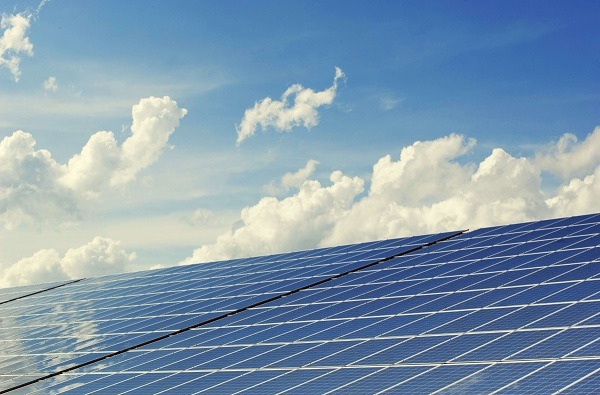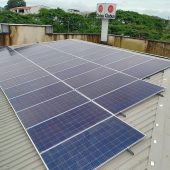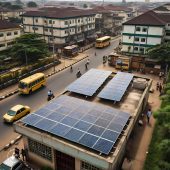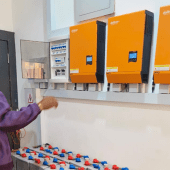In recent years, solar energy has emerged as a promising alternative to traditional sources of electricity. With its numerous benefits, including environmental friendliness and cost-effectiveness, solar power is increasingly becoming a viable option for homeowners, particularly in Nigeria where access to reliable electricity can be limited. But how exactly does solar energy work, and how can it be harnessed to benefit homes in Nigeria and Africa?
How Solar Panels Generate Electricity
At the core of solar energy production are photovoltaic (PV) cells, commonly known as solar cells. These cells are typically made of semiconductor materials like silicon, which have special properties that allow them to convert sunlight directly into electricity through the photovoltaic effect.
When sunlight hits the surface of a solar panel, the photons in the sunlight knock electrons loose from the atoms in the semiconductor material. This creates an electric current, which is then captured by the solar cells and converted into usable electricity. Multiple solar cells are connected to form a solar panel, and several panels are often grouped to form a solar array capable of generating significant amounts of electricity for use.
Storing and Harnessing Solar Energy
Solar panels mostly generate electricity when exposed to sunlight, which means that energy production fluctuates based on factors like time of day, weather conditions, and seasonal changes. To address this issue, solar energy systems often incorporate energy storage solutions like batteries.
Batteries allow excess energy generated during peak sunlight hours to be stored for later use, such as during periods of low sunlight or at night. This stored energy can then be drawn upon to power homes and appliances when solar production is insufficient, providing a reliable and uninterrupted source of electricity.
Benefits of Solar for Homes and Businesses in Nigeria
In Nigeria, where many states and regions suffer from unreliable or nonexistent access to the grid, solar energy offers a transformative solution. By harnessing the abundant sunlight available across the Nation, solar power can provide a reliable source of electricity to homes, schools, hospitals, and businesses, even in remote areas.
Furthermore, solar energy systems can be installed relatively quickly and at varying scales to meet the specific needs of different communities. From small-scale solar home systems to larger microgrids serving entire villages, solar power offers flexibility and scalability, making it accessible to a wide range of users.
Conclusion
Solar energy is a clean, renewable, and increasingly cost-effective source of electricity that holds great promise for homes and businesses in Nigeria and beyond. By understanding how solar panels generate electricity and how energy can be stored and harnessed, communities can unlock the benefits of solar power to improve their quality of life and create a more sustainable future.





